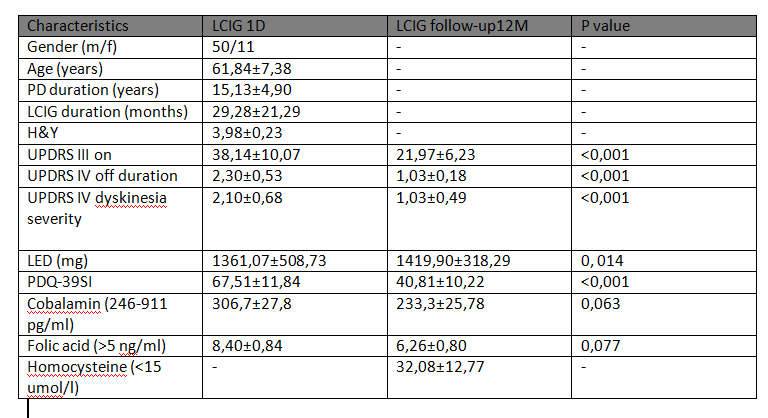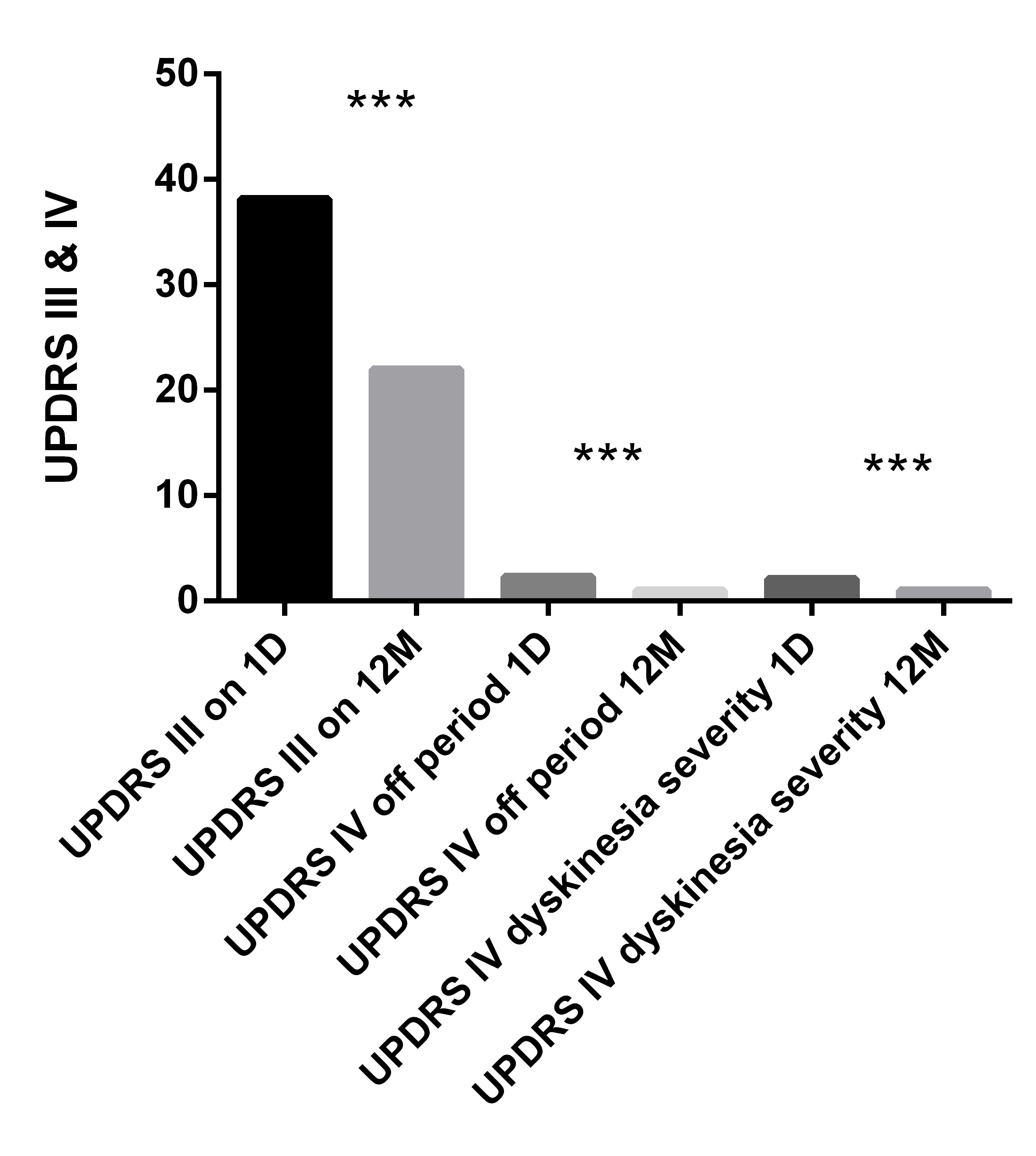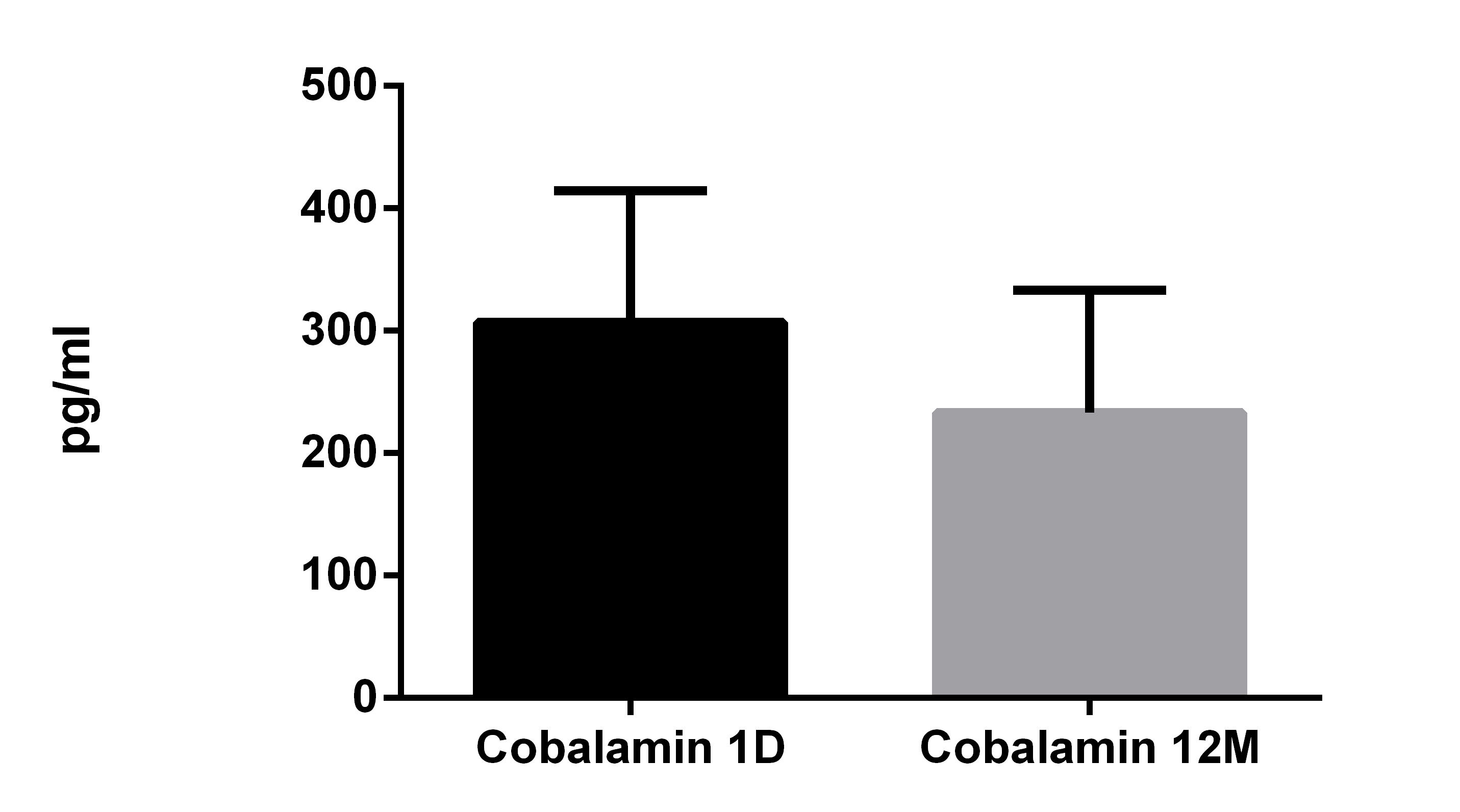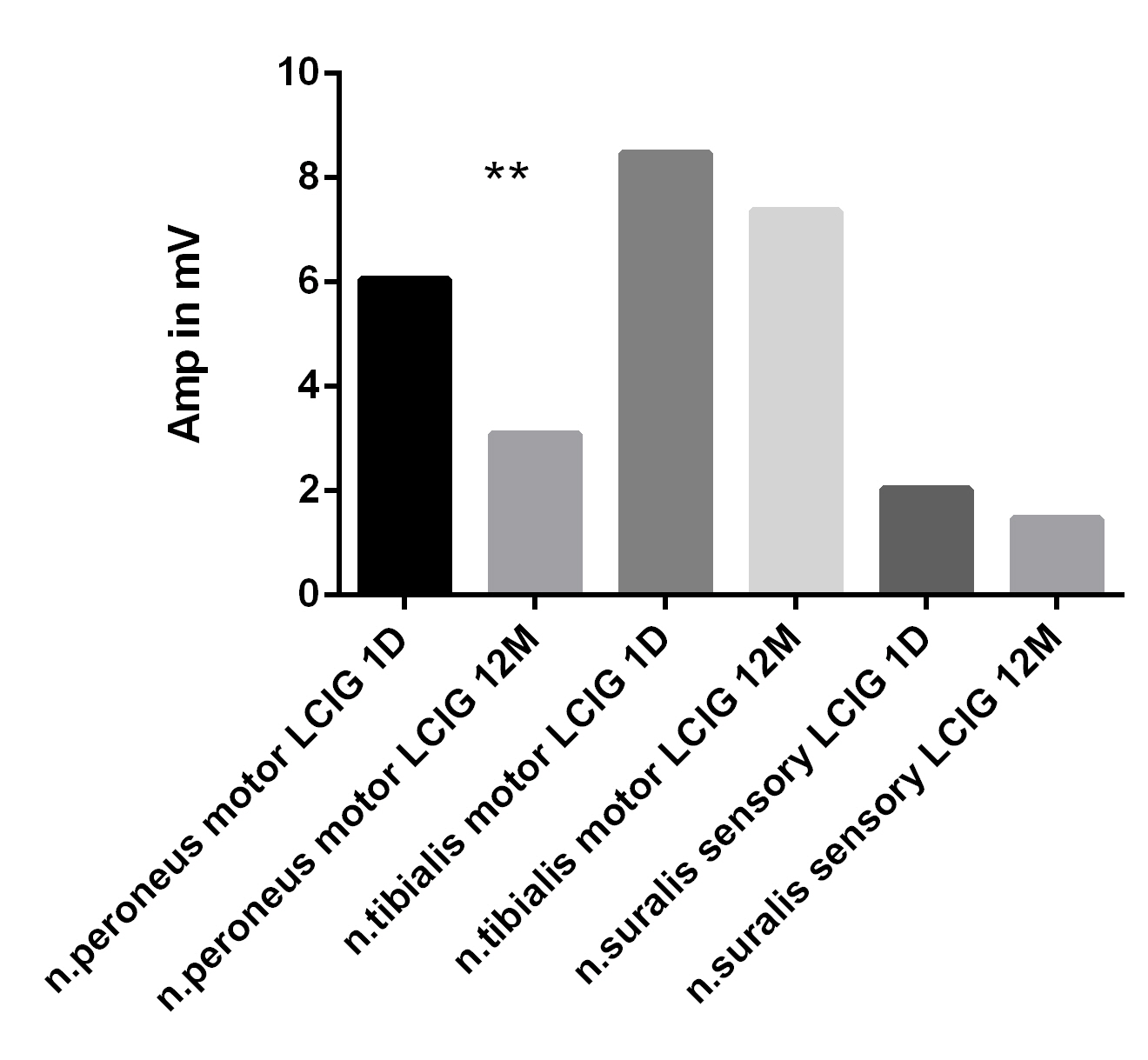Session Information
Date: Saturday, October 6, 2018
Session Title: Parkinson’s Disease: Clinical Trials, Pharmacology And Treatment
Session Time: 1:45pm-3:15pm
Location: Hall 3FG
Objective: To evaluate the efficacy of levodopa/carbidopa intestinal gel (LCIG) on motor fluctuations, dyskinesia, parkinson symptoms and quality of life in patients with late Parkinson’s disease (PD), as well to give an answer to the question about the association between polyneuropathy and vitamin levels.
Background: LCIG is a special gel formulation for a continuous delivery into the small intestine via a percutaneous endoscopic gastrostomy (PEG). Levodopa is delivered continuously each hour for a 16-hours’ infusion, which provides a stable plasma concentration, compared to oral treatment. This delivery resembles the normal physiological stimulation of nigrostriatal receptors which leads to a reduction of motor fluctuations.
Methods: The observation is retrospective, we analyzed data from 61 patients with late PD treated in the Movement disorders department of MHATNP “St.Naum” from 2009 to 2016. 50 males, 11 females at the age of 61,84 (±7,38 SD) while starting LCIG treatment. For that purpose we used Unified Parkinson’s disease Rating Scale Part III and IV (UPDRS), questionnaire for quality of life: PDQ-39, levodopa equivalent dose (LED) and electrophysiological methods [Table 1].
Results: We compared the patients on the 1-st day (1D) of starting LCIG and one year after starting treatment (follow-up 12M). We reported significant improvement of motor fluctuations and parkinson symptoms one year after starting LCIG (UPDRS III on, UPDRS IV off duration and UPDRS IV dyskinesia severity). We valued a slight increase of LED. There was a significant improvement of quality of life of all the patients. Levels of cobalamin and folate were low on 1D and the follow-up 12M within the low range. Homocysteine levels were elevated about two times with a significant correlation to vitamin levels. The lower the vitamin levels were, the higher the homocysteine levels were. 25 % of the group had a motor axonal and 16,7 % had a demyelinating polyneuropathy which was more pronounced on follow-up 12M. Polyneuropathy corresponded to low vitamin levels and elevated homocysteine levels which correlated to neurographies [Graph 1],[Graph 2],[Graph 3].
Conclusions: We can summarize that there is a significant improvement in Parkinson symptoms, motor fluctuations and quality of life of PD patients under LCIG treatment. Levodopa treatment correlates with decreasing of cobalamin and folates and elevation of homocysteine with slightly prevalence for LCIG and a manifestation of polyneuropathy. Our data corresponds to that of other investigators. The results are not definitive, they are a subject of further investigations and collaboration with other researchers.
References: Antonini A, Yegin A, Preda C, Global long-term study on motor and non-motor symptoms and safety of levodopa-carbidopa intestinal gel in routine care of advanced Parkinson’s disease patients; 12-month interim outcomes. Parkinsonism Relat Disord. 2015 Mar; 21(3): 231-5. Toth, C., Breithaupt, K., Ge, S., Duan, Y., Terris, J. M., Thiessen, A., Wiebe, S., Zochodne, D. W. and Suchowersky, O. Levodopa, methylmalonic acid, and neuropathy in idiopathic Parkinson disease. Ann Neurol., 2010; 68: 28–36.
To cite this abstract in AMA style:
E. Chorbadzhieva. Treatment with levodopa/carbidopa intestinal gel of advanced Parkinson’s disease patients: Bulgarian experience [abstract]. Mov Disord. 2018; 33 (suppl 2). https://www.mdsabstracts.org/abstract/treatment-with-levodopa-carbidopa-intestinal-gel-of-advanced-parkinsons-disease-patients-bulgarian-experience/. Accessed January 7, 2026.« Back to 2018 International Congress
MDS Abstracts - https://www.mdsabstracts.org/abstract/treatment-with-levodopa-carbidopa-intestinal-gel-of-advanced-parkinsons-disease-patients-bulgarian-experience/




